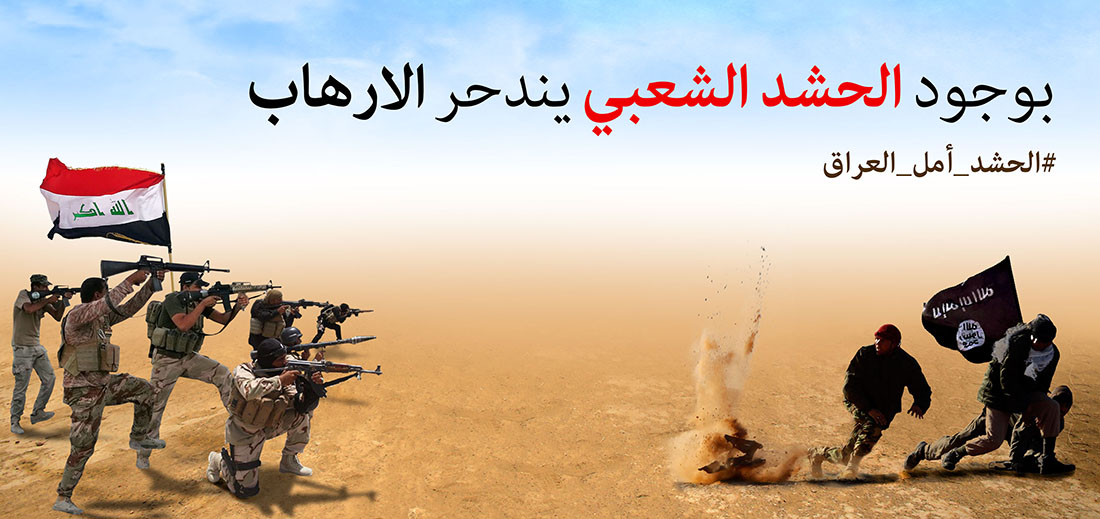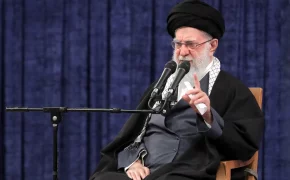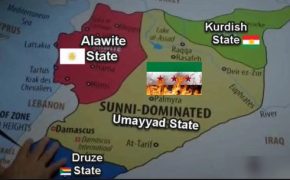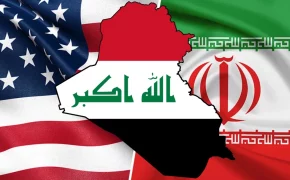Article: The scenario of the Popular Mobilization Forces (Al-Hashd Ash-Sha’bi) extirpating, Part 1

Why do they want to extirpate the Popular Mobilization Forces? From the very beginning of the formation of the Popular Mobilization Forces until now, especially after the defeat of the ISIS terrorist forces, there have been numerous overt and covert attempts to dissolve and remove the Popular Mobilization Forces organization in Iraq. These efforts are […]
Why do they want to extirpate the Popular Mobilization Forces?
From the very beginning of the formation of the Popular Mobilization Forces until now, especially after the defeat of the ISIS terrorist forces, there have been numerous overt and covert attempts to dissolve and remove the Popular Mobilization Forces organization in Iraq. These efforts are being pursued by the United States, Saudi Arabia, the Zionist regime, and some political spectrums and groups inside Iraq, that there are numerous cases and varied instances to prove it.
For example, Zionist drone strikes in recent months on Popular Mobilization Forces headquarters or the US condition for extension of Iraq exemption from Iran sanctions in exchange for the Popular Mobilization Forces disarmament can be mentioned. More recently, the U.S. Department of the Treasury imposed sanctions on four Iraqis on the pretext of human rights abuses whom three of them are the Popular Mobilization Forces leaders. [1] This note explains why there are some efforts to extirpate the Popular Mobilization Forces of Iraq.
– Forming out of conventional processes
The Popular Mobilization Forces in Iraq’s first and only military and defense entity that has been formed independent of existing processes such as political spectrums agreements, collusion and economic corruption or targeted US programs in Iraq. Although the militant groups under the Popular Mobilization Forces leadership are attributable to some Iraqi religious and political leaders, the ruling spirit of the Popular Mobilization Forces is completely independent of the conventional divisions in the country. This structure poses a serious threat to the United States, which is the main designer and beneficiary of current systems and structures in Iraq.
– Massive and widespread social support
Almost all provinces and regions of Iraq, including the Sunni areas, have been involved in the formation of the Popular Mobilization Forces. However, the role and contribution of Iraqi Shia have been far more effective than others. However, they can be considered as the only organization in Iraq, which has a pervasive range of members from most of Iraq cities. On the other hand, having representatives and recruitment offices in different areas of Iraq is also a strength of the organization. This has led some political parties, such as the Sadrist Movement, to consider the Popular Mobilization Forces as their serious competitor to draw public support.
– The ideological and uniting foundation
The Popular Mobilization Forces are the only institution that has not been formed under a political, religious, or tribal process. Rather, it is at the heart of the national-religious beliefs that have brought together various groups and provided the basis for the unity and unity of different groups. The multiplicity of religious and political spectrums in Iraq has caused the country to continue to face political and internal strife, so the United States and its favorable countries continuing to take advantage of this characteristic of Iraqi society. By founding the Popular Mobilization Forces, a new trend emerged, unlike previous practices that naturally had many dissenters.
– The reason for confidence in Iraqi society
Following ISIS’s entry into Iraq and the continuous defeats of the Iraqi army, an atmosphere of frustration and lack of self-esteem prevailed in Iraqi society, and the general public sought a way to make up for those failures. Most of the Iraqi youth who were highly motivated to compensate for their defeats voluntarily participated in the formation of various Popular Mobilization Forces groups, with the mandate of the Jihad of the Iraqi Marja’iyyat to confront ISIS. This has made the Popular Mobilization Forces a symbol of the Iraqi national self-confidence. Even in recent protests, the experience of victory over ISIS has given Iraqi youth confidence to fight economic and political problems. Having national self-confidence in Iraqi society means moving towards independence and relying on the power of its youth, which will lead to the formation of a powerful nation. However, a strong and independent Iraq conflicts with the interests of the US and Saudi Arabia. The US is already in the country under the pretext of the lack of security. Saudi Arabia, on the other hand, sees Iraq as its longtime rival in the leadership of the Arab states.
– Affiliation to reputation and position of Marja’iyyat
Given the effective role of the reputation and position of Marja’iyyat in the formation of Popular Mobilization Forces, the power and strength of the Popular Mobilization Forces mean the power and strength of Marja’iyyat in Iraq. It is clear that countries such as the United States and Saudi Arabia will never agree with strengthening the Shia Marja’iyyat in Iraq, and they see their interests threatened. On the other hand, some political movements that have long opposed the strengthening of Shia Marja’iyyat in Iraq will also oppose maintaining and strengthening the Popular Mobilization Forces’ power. The Sadr Movement, which has always tried to discredit Iraq’s current Marja’iyyat under the pretext of Arab and non-Arab Marja’iyyat, is also seeking the dissolution of the Popular Mobilization Forces.
– Security and military competition with the US
During the fight against ISIS, Popular Mobilization Forces, besides the gaining experiences in the intelligence and security, they succeeded in proper structuring in these parts as well. Before the recent protests, for example, the Popular Mobilization Forces intelligence units have identified and foiled various conspiracies, most notably the plot of some of the country’s top military commanders. On the other hand, one of the major bottlenecks the US has taken in the form of private and public companies in Iraq is the security and intelligence sectors. Like the highway and international airport security companies. According to the power and strength of Popular Mobilization Forces, it can be counted as a potential rival to take over the control form the US sectors.
– Capability to build and rebuild infrastructure
The experience of the Popular Mobilization Forces in the construction sector has been greatly increased over the years, and besides having the right equipment, their concern and approach have always been to rebuild and restore destroyed areas during the war. This capacity makes it possible to complete some infrastructure projects, far from political and economic collusion, if the government is well established and policy-driven. Naturally, Iraq’s move toward civilization and reconstruction, this means moving towards a sovereign, independent state that is against the interests of the United States and its favored countries.
– The capacity to attract and rely on youth
Perhaps the most important feature of the Popular Mobilization Forces that has led to many plots against it is its high capacity to attract Iraqi youth. Bringing Iraqi youth together through lofty goals means building the nation’s next generation with the aspiration to fight any aggression and oppression. The youthfulness traits also make Iraqi youths motivated spirituality to spread into society and become the dominant discourse.
Other cases can be cited as reasons for some attempts to dissolve the Popular Mobilization Forces, such as the ideological link with the Islamic Republic of Iran or the existence of some senior commanders in there who have a close relationship with Iran. However, the main goal of this note is to allude the reasons which are the inside of Iraqi society, and the key factors are within Iraq itself.
[1] In the second part, these cases and examples will be described in detail.




Comment